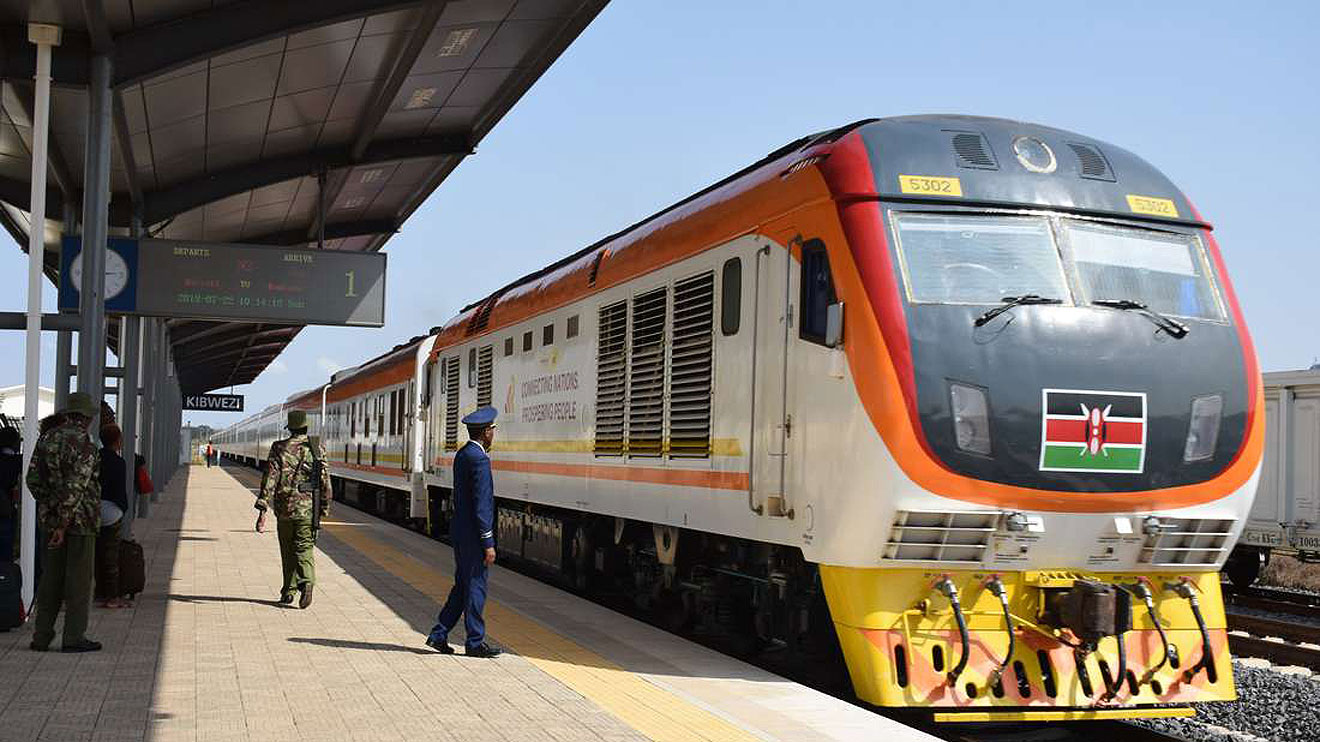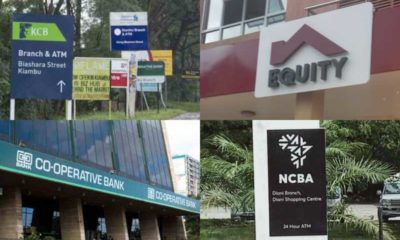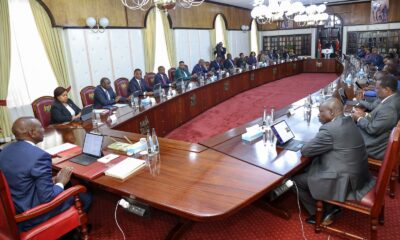Banks
Kenya Fined Sh1.31bn For Defaulting SGR loans Deal With China

Kenya defaulted on refund of the Chinese loans which main purpose was for the construction of the standard gauge railway (SGR), highlighting the country’s struggles with the mounting national debt. The Chinese banks fined Kenya Sh1.312 billion in the year ended June for loan defaults, according to the data indicated by the Treasury documents.
The Chinese lenders granted Kenya close to a half a trillion shillings, led by the Export-Import Bank of China, to finance the construction of the SGR from Mombasa to Naivasha.
Taxpayers have been forced to shoulder the burden of the SGR loans since revenues got from the passenger and cargo services on the track are inadequate to meet the operation costs, which stood at Sh18.5 billion in the year to June against sales of Sh15 billion. “This (Sh1.312 billion) relates to the cost of default on interest at one percent of the due amount,” say the disclosure documents. SGR reported an operation loss of Sh3.4 billion, and wired Sh22.7 billion in loan repayments in the year to June.
The default came in a year when Kenya had requested for an extension of the debt repayment ban from bilateral lenders, including China, by another six months to December 2021, saving it from committing billions to the Beijing lenders. But the lenders, mostly Exim Bank of China, declined Kenya’s application for a debt repayment holiday in a standoff that delayed disbursements to projects funded by Chinese loans.
China carried over the repayments in January last year, helping Kenya temporarily retain Sh27 billion that was due for six months ending June 2021. The opposition from Chinese lenders forced Nairobi to drop its push for extension of the debt repayment holiday to get rid of straining relations with Kenya’s biggest reciprocal creditor.
China, which accounted for about one-third of Kenya’s 2021-22 external debt service costs, is the nation’s biggest foreign creditor after the World Bank. Kenya spent a total of Sh117.7 billion on Chinese debt in the period, of which about Sh24.7 billion is in interest payments and almost Sh93 billion in redemptions, according to budget documents. Reimbursement of the SGR loan started in January 2020 after the lapse of a five-year grace period that Beijing had given Kenya.
The loan default underscores Kenya’s financial distress in the face of fast-maturing debts that have eaten deep into tax collections and squeezed funds for development projects. Former President Uhuru Kenyatta’s administration mostly took loans from China from 2014 to build roads, bridges, power plants and the SGR.
This greatly took effect after Kenya became a lower-middle-income economy, banning her from highly concessional loans from development lenders such as the World Bank. China’s influence on the country’s infrastructure development, however, started in earnest with construction of the Thika Superhighway between January 2009 and November 2012 at a cost of nearly Sh32 billion during the last term of President Mwai Kibaki.
The plan to fund the first stage of the SGR, Kenya’s single-largest infrastructure project by cost since independence, saw China overtake Japan as Kenya’s largest bilateral lender. Kenya’s debt went up more than four-fold to Sh8.58 trillion under the Kenyatta administration. The flow in liabilities left the country at high risk of debt distress, according to the International Monetary Fund (IMF).
The cost of servicing public debt is poised to jump by a third to a record Sh1.39 trillion in the fiscal year through June 2023, more than half of projected State revenue. Kenya spent almost 57 percent of tax income in the past financial year on repaying loans, according to the Treasury, underlining the effects of the mounting public debt on State finances.
The terms of China’s loan deals with developing countries are unusually secretive and require borrowers to prioritize repayment to Chinese state-owned banks ahead of other creditors. A cache of such contracts was revealed in a past report by Reuters. The dataset — compiled over three years by AidData, a US research lab at the College of William & Mary — comprises 100 Chinese loan contracts with 24 low- and middle-income countries, a number of which are struggling with mounting debt amid the economic fallout from the Covid-19 pandemic.
It uncovered several unusual features, including confidentiality clauses that prevent borrowers from revealing the terms of the loans, informal collateral arrangements that benefit Chinese lenders over other creditors and promises to keep the debt out of collective restructurings — dubbed by the authors as “no Paris Club” clauses.
The Paris Club is a group of officials from major creditor countries whose role is to find solutions to the payment difficulties of debtor countries. President William Ruto last month reversed one of the most controversial policies of the previous administration that had made it compulsory for cargo clearance to be done at the inland container depots in Nairobi and Naivasha.







